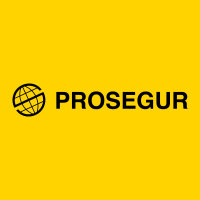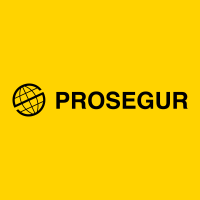
Prosegur Compania de Seguridad SA
MAD:PSG


| US |

|
Johnson & Johnson
NYSE:JNJ
|
Pharmaceuticals
|
| US |

|
Berkshire Hathaway Inc
NYSE:BRK.A
|
Financial Services
|
| US |

|
Bank of America Corp
NYSE:BAC
|
Banking
|
| US |

|
Mastercard Inc
NYSE:MA
|
Technology
|
| US |

|
UnitedHealth Group Inc
NYSE:UNH
|
Health Care
|
| US |

|
Exxon Mobil Corp
NYSE:XOM
|
Energy
|
| US |

|
Pfizer Inc
NYSE:PFE
|
Pharmaceuticals
|
| US |

|
Palantir Technologies Inc
NYSE:PLTR
|
Technology
|
| US |

|
Nike Inc
NYSE:NKE
|
Textiles, Apparel & Luxury Goods
|
| US |

|
Visa Inc
NYSE:V
|
Technology
|
| CN |

|
Alibaba Group Holding Ltd
NYSE:BABA
|
Retail
|
| US |

|
3M Co
NYSE:MMM
|
Industrial Conglomerates
|
| US |

|
JPMorgan Chase & Co
NYSE:JPM
|
Banking
|
| US |

|
Coca-Cola Co
NYSE:KO
|
Beverages
|
| US |

|
Walmart Inc
NYSE:WMT
|
Retail
|
| US |

|
Verizon Communications Inc
NYSE:VZ
|
Telecommunication
|
Utilize notes to systematically review your investment decisions. By reflecting on past outcomes, you can discern effective strategies and identify those that underperformed. This continuous feedback loop enables you to adapt and refine your approach, optimizing for future success.
Each note serves as a learning point, offering insights into your decision-making processes. Over time, you'll accumulate a personalized database of knowledge, enhancing your ability to make informed decisions quickly and effectively.
With a comprehensive record of your investment history at your fingertips, you can compare current opportunities against past experiences. This not only bolsters your confidence but also ensures that each decision is grounded in a well-documented rationale.
Do you really want to delete this note?
This action cannot be undone.

| 52 Week Range |
1.534
1.954
|
| Price Target |
|
We'll email you a reminder when the closing price reaches EUR.
Choose the stock you wish to monitor with a price alert.

|
Johnson & Johnson
NYSE:JNJ
|
US |

|
Berkshire Hathaway Inc
NYSE:BRK.A
|
US |

|
Bank of America Corp
NYSE:BAC
|
US |

|
Mastercard Inc
NYSE:MA
|
US |

|
UnitedHealth Group Inc
NYSE:UNH
|
US |

|
Exxon Mobil Corp
NYSE:XOM
|
US |

|
Pfizer Inc
NYSE:PFE
|
US |

|
Palantir Technologies Inc
NYSE:PLTR
|
US |

|
Nike Inc
NYSE:NKE
|
US |

|
Visa Inc
NYSE:V
|
US |

|
Alibaba Group Holding Ltd
NYSE:BABA
|
CN |

|
3M Co
NYSE:MMM
|
US |

|
JPMorgan Chase & Co
NYSE:JPM
|
US |

|
Coca-Cola Co
NYSE:KO
|
US |

|
Walmart Inc
NYSE:WMT
|
US |

|
Verizon Communications Inc
NYSE:VZ
|
US |
This alert will be permanently deleted.
 Prosegur Compania de Seguridad SA
Prosegur Compania de Seguridad SA
Prosegur Compania de Seguridad SA
Investor Relations
Prosegur Compañia de Seguridad SA engages in the provision of security services and solutions. The company is headquartered in Madrid, Madrid and currently employs 140,758 full-time employees. The Company’s activities are divided into business segments: Integrated Security Solutions (ISS), Cash in Transit (CIT) and Alarms. The ISS division provides surveillance and protection of premises, property and persons, as well as activities related to technological security solutions. The CIT division offers transportation, storage, safekeeping, counting and classification of coins and banknotes, deeds, securities and other goods that require special protection. The Alarms division comprises installation and monitoring of home alarms. The firm operates through numerous subsidiaries in Europe, Latin America, Asia, Africa and Australia. The company is controlled by Gubel SL.

Prosegur Compañia de Seguridad SA engages in the provision of security services and solutions. The company is headquartered in Madrid, Madrid and currently employs 140,758 full-time employees. The Company’s activities are divided into business segments: Integrated Security Solutions (ISS), Cash in Transit (CIT) and Alarms. The ISS division provides surveillance and protection of premises, property and persons, as well as activities related to technological security solutions. The CIT division offers transportation, storage, safekeeping, counting and classification of coins and banknotes, deeds, securities and other goods that require special protection. The Alarms division comprises installation and monitoring of home alarms. The firm operates through numerous subsidiaries in Europe, Latin America, Asia, Africa and Australia. The company is controlled by Gubel SL.





























 You don't have any saved screeners yet
You don't have any saved screeners yet
